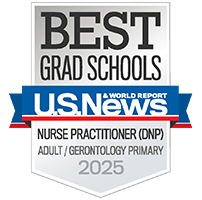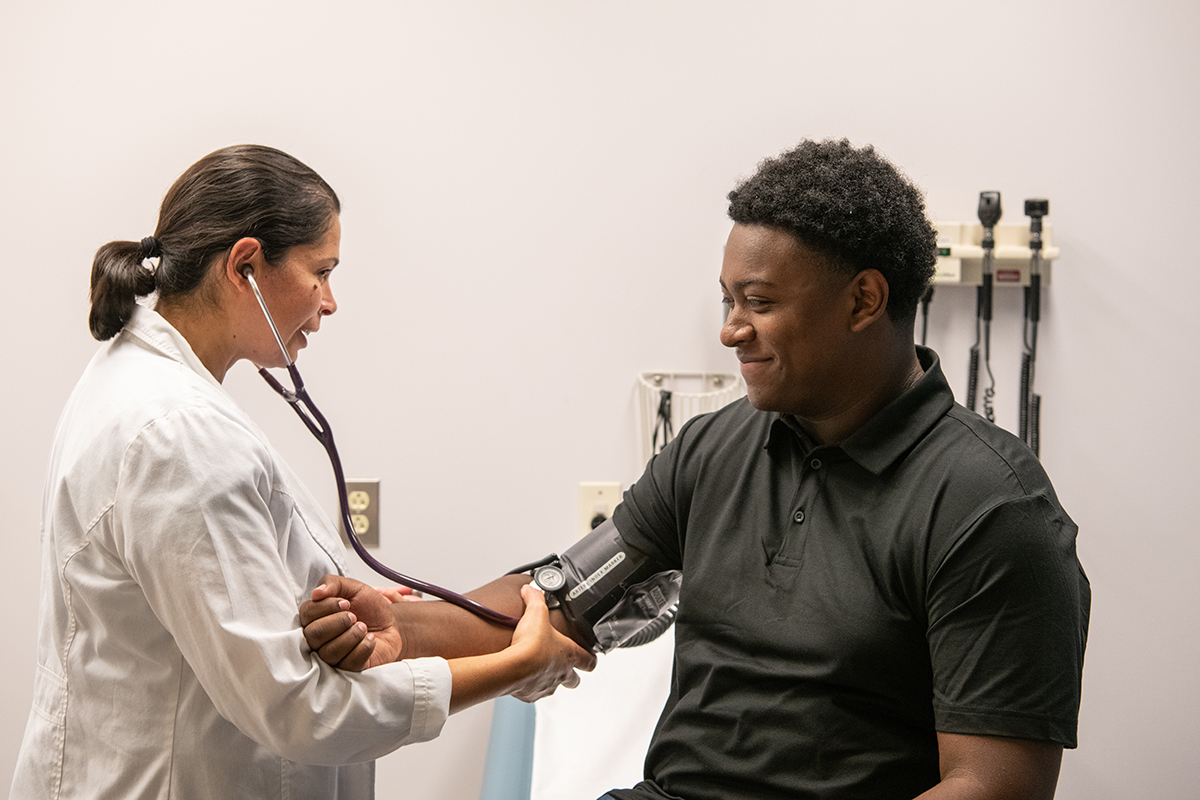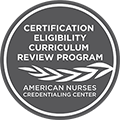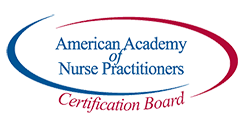The questions below relate directly to the Adult-Gerontology Primary Care Nurse Practitioner DNP specialty. You may also want to refer to our general FAQs regarding the DNP.
How long does it take to complete the specialty?
Students can choose from several options for completing their studies. Click the Sample Plans of Study tab to view each of the different options.
What type of nursing experience should applicants have?
You must have at least two years of registered nursing experience by the time of admission.
Applicants will benefit from having recent clinical experience that requires a high level of patient assessment and critical thinking; for example, experiences working on general medical surgical units, urgent/emergency departments, primary care practices, student health settings, ambulatory and outpatient clinics, or long term care settings.
How much hands-on clinical time will need to be completed?
The minimum number of practicum hours required for the DNP degree is 1,000 hours. For University of Maryland School of Nursing (UMSON) graduates to be eligible for their respective board certification exams, they must complete the DNP degree. Refer to the plans of study for the number of clinical hours required each semester.
Do students have to find their own preceptor or clinical site? Can they do their clinical rotations where they work?
Students are not required to find their own preceptor or clinical site. The UMSON faculty is committed to assigning students to clinical sites that are appropriate for course and program objectives. We are fortunate to have contacts with many nurse practitioner alumni and other providers who serve as preceptors. UMSON has clinical contracts with agencies in a variety of settings across the state of Maryland and in Washington, D.C. Students with a particular clinical site/preceptor of interest may forward the contact information to the course faculty member so the faculty member can determine whether the site is appropriate to meet the course objectives. Faculty members must approve any student-suggested site. Students should not complete their clinical rotations in the specific environments where they are employed due to a potential conflict of interest. Final approval of clinical site placement is at the faculty member’s discretion.
Students will be exposed to clinical experiences across the adult aging continuum and in a variety of clinical settings.
Where can graduates work? What is the job market like for graduates of this specialty?
Graduates of the AGNP program are working in a variety of settings including primary care practices, specialty practices, long term care settings (assisted living or nursing home), senior housing sites, as members of clinically focused research teams, and in college and employee health clinics, among other settings.
Is there anything else I can do to strengthen my application?
Many variables are taken into consideration when reviewing a student’s application for admission. A strong foundation in courses such as anatomy and physiology, microbiology, pharmacology, and physical assessment is one key to success. Retaking courses with weak grades is suggested, but does not guarantee admission. Writing and grammar skills are also critically important for graduate-level education. Taking a writing course, particularly a technical writing course, may be of assistance. You may take these courses at a university of your preference. In addition, an applicant’s involvement in professional and organizational activities, as well as other scholarly activities, is evidence of leadership capabilities and interests. Current clinical experience requiring a high level of patient assessment and critical thinking is ideal and completion of certification in your specialty area is strongly recommended. We highly recommend that you spend several hours shadowing an advanced practice nurse in the specialty you wish to pursue.
How can I get additional information?
For more information regarding admissions to this specialty, please contact the UMSON Admissions Office at: 410-706-0501, option #2 or admissions.nursing@umaryland.edu.



